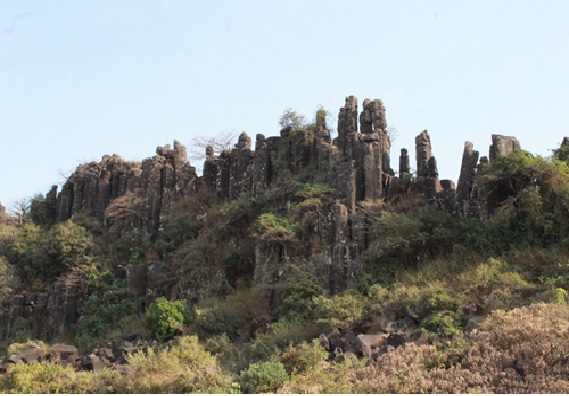Project Description
Deccan traps are one of the largest volcanic features on the earth. Polygonal patterns and columnar joints in basaltic rocks are the most fascinating structures for geologists and volcanologists. Now Indian scientists have discovered a rare, well developed polygonal column basalt structure in a village in Kolhapur district in Maharashtra.
The newly discovered basalt flow with columnar structures is part of the 65.6 million year-old Panhala Formation, one of the youngest formations of the Deccan Traps.
The series of spectacular columns of different sizes was found at Bandivade village near Panhala by researchers from Savitribai Phule Pune University, Dr D Y Patil Vidyapeeth, Pune and Kolhapur-based D Y Patil College of Engineering and Technology and Gopal Krishna Gokhale College.


